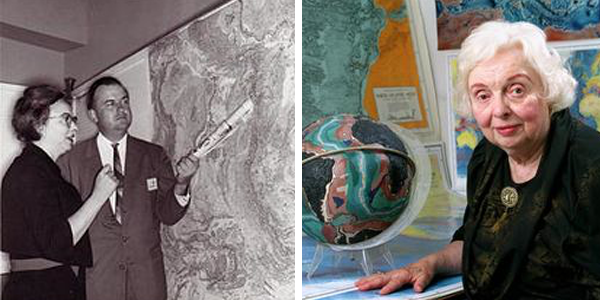When young women see women in STEM succeed and thrive, they feel empowered to follow their passions into those careers as well. The gender imbalance of STEM fields is not only a daunting, self-reinforcing cycle, but also a barrier to new scientific discovery (diversity and inclusion make a difference!). It’s something that must be corrected from the inside. And academics all have the power to do so.
One such avenue is by engaging the world’s #1 source of online information: Wikipedia. Academics can use their resources and expertise to make Wikipedia better, which has the power to inspire the next generation of women interested in STEM. Wikipedia matters for women in science. Wikipedia biographies of women in STEM model potential career paths for young people. Reading about women in a variety of fields can help alleviate the threat of negative stereotypes in STEM and beyond. And seeing women and people of color in a young person’s chosen profession minimizes the sense of responsibility they may feel to confront stereotypes alone.
There’s a lot of work to do on Wikipedia. Only 17% of biographies are about women. And women are more likely than men to be described in terms of their family life, rather than their careers. Let’s change that. As Eryk Salvaggio writes, the gap in Wikipedia’s coverage of women reflects worrisome stereotypes of women in science, but it’s also an unprecedented opportunity to challenge those stereotypes.
You may be familiar with physicist and Wikipedia rockstar Dr. Jess Wade and the hundreds of Wikipedia biographies about women in STEM that she has written.
“I kind of realized we can only really change things from the inside,” Dr. Wade told The Guardian. “Wikipedia is a really great way to engage people in this mission because the more you read about these sensational women, the more you get so motivated and inspired by their personal stories.” Making society’s favorite encyclopedia reflective of the diverse lives and achievements of women leads to equity in these fields.
Wikipedia is a touchstone of our digital information age and academics have told us for years that they want to get involved in helping shape it. But it isn’t obvious or intuitive where to look to learn the “rules” of editing. And it can be intimidating to enter a new community with its own sets of norms and expectations.
That’s where we come in. Wiki Education has a track record for guiding newcomers in the technical, cultural, and procedural practices of Wikipedia writing. Our virtual courses equip scholars of all levels to channel their expertise into a platform where people are most looking for information. Our course alumni are helping close Wikipedia’s gender content gap; they’re setting examples for future women in STEM; and they’re expanding their science communication tool belt to promote important research in their own fields.
One of many success stories to come out of our virtual Wiki Scientist courses is the biography of geologist and oceanographic cartographer Marie Tharp. Before a participant in our Communicating Science course started making changes, the article had information about her career and early life, but not much about her scientific contributions. It now includes more about the impact of her work. The course participant also noticed that the photograph used in the article was more a picture of a male colleague of hers, who appeared to be showing her something on a map, when in reality the map he was pointing to was of her own creation. Now the article includes a much better image of Tharp with her work.

Subtle inequalities like this are pervasive; and they are what draw a lot of scholars to our programs. Scholars increasingly want to reach the public with their efforts, and they understand that the most important public archive of our age should be representative of everyone.
“Lately, I have become increasingly frustrated by the way both women and science are discredited. How can I act as a counterbalancing force, I often wondered, while working as a full-time chemistry graduate student?” says Columbia University graduate student Karen Kwon, an alum of our course.
Ultimately, she says, “Learning how to edit and create Wikipedia pages and experiencing the culture of Wikipedia was such a joy, especially since all my efforts were put towards a cause that I deeply care about. … I will continue to edit Wikipedia so that all deserving women scientists have Wikipedia pages.”
Improving Wikipedia is a collaborative effort, one that we can all chip away at. “My guiding principal has become the idea of improvement rather than perfection,” reflects Samantha Kao, another Wiki Scientist from our course. “Any improvement leaves an article better than it was before.”
“As academics, it’s drilled into you that your time is precious and limited,” says Chelsea Sutcliffe, another course alum. “But our academic and civic duties extend beyond what is required or expected of us. Nothing will change unless we will it to. A bottom-up approach matters just as much as a top-down approach. There is nothing more satisfying than providing content for the world’s most accessible platform for anyone to see, respect, and admire.”
If you’re looking for how you can get involved right now, join us in our next Communicating Science virtual course! You have the power to make sure women are written into history. Register here.
